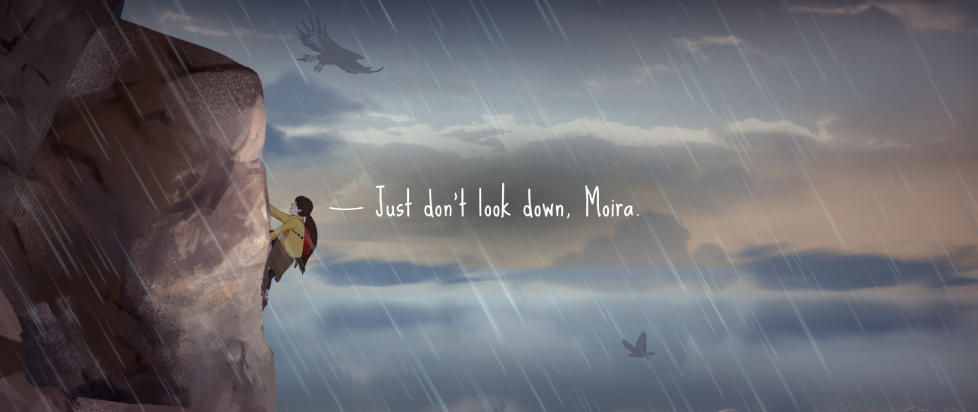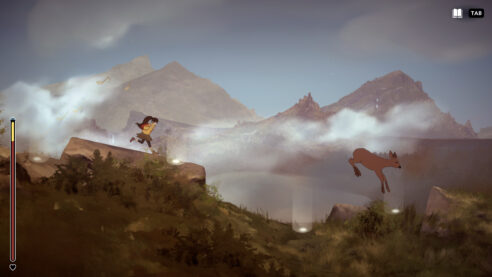
Returning to Rhythm in A Highland Song
I fell down a mountain once. A volcano, technically, by then long dormant and covered over with grass. I tripped over a rock and went flying down an unforgiving slope, and for a moment was terrified of an outcome much worse than having an anecdote to tell years later. But I hobbled the rest of the way back down, absurdly lightly injured.
I thought of this while playing A Highland Song. A Highland Song isn’t playing with tension or peril the way a very real tumble can. There’s no game over or failstate, and so the worst threat that pursues Moira McKinnon on her journey through the highlands is being late on her quest to meet her uncle at the lighthouse. So, when I first started playing it, I rushed.
I initially took it to be a game about climbing up mountains. I attentively planned my routes between valleys to jump, climb and scrabble to the nearest peak, only to carelessly sprint down them in my rush to get to ‘the next bit’, and send Moira sprawling. If there’s a shared moral between my real life experience and A Highland Song, it’s that hiking down mountains is just as tricky as going up them.
With each slip and fall, Moira’s stamina drops dramatically, impacting her ability to climb at length without scrambling or falling. Climbing in adverse conditions, like rain and snow, makes it drop even faster. If Moira’s stamina falls all the way to zero, a quirk of the narrative will see her dropped somewhere safely nearby and fully restored the next morning – so the only thing you can really lose is time.

A Highland Song doesn’t punish playing recklessly, but injuries serve as a course correction: you’re missing the joy of the game. It isn’t a game about climbing mountains, but being among them, and when you’re paying attention to the whole journey, there’s suddenly a rhythm to the route.
Climbing a peak isn’t the end goal, but a place to gather your bearings in the morning, to scout out your wider journey for the day and seek out places to rest when night comes. Resting with the elements instead of battling against them rewards you with renewed stamina, and when you don’t hurtle off towards cliff edges there’s the return of the more responsive rhythm of the land under your feet: to sprint, to jump, to climb, only where the landscape is ready for it.
Perhaps for both me and Moira, a twisted ankle on a mountain peak is a reminder to be more attentive to our surroundings – but there’s a wonderful difference in A Highland Song where instead of it being a reminder of risk, it’s an invitation to take part. The scariest thing that can happen when you rush your way downhill is that you miss the reason you were traveling in the first place.
———
Ruth Cassidy is a writer and self-described velcro cyborg. They can be found in various places at linktr.ee/ruthvcassidy.





